The history of science and technology (HST) is a field of history that examines the understanding of the natural world (science) and the ability to manipulate it (technology) at different points in time. This academic discipline also studies the cultural, economic, and political impacts of and contexts for scientific practices.
Gerald James Holton is an American physicist, historian of science, and educator, whose professional interests also include philosophy of science and the fostering of careers of young men and women. He is Mallinckrodt Professor of Physics and Professor of the History of Science Emeritus at Harvard University. His contributions range from physical science and its history to their professional and public understanding, from studies on gender problems and ethics in science careers to those on the role of immigrants. These have been acknowledged by an unusually wide spectrum of appointments and honors, from physics to initiatives in education and other national, societal issues, to contributions for which he was selected, as the first scientist, to give the tenth annual Jefferson Lecture that the National Endowment for the Humanities describes as, “the highest honor the federal government confers for distinguished achievement in the humanities”.
I. Bernard Cohen was the Victor S. Thomas Professor of the history of science at Harvard University and the author of many books on the history of science and, in particular, Isaac Newton and Benjamin Franklin.
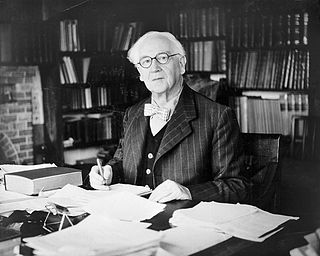
Charles Joseph Singer was a British historian of science, technology, and medicine. He served as medical officer in the British Army.

George Alfred Leon Sarton was a Belgian-born American chemist and historian. He is considered the founder of the discipline of the history of science as an independent field of study. His most influential works were the Introduction to the History of Science, which consists of three volumes and 4,296 pages and the journal Isis. Sarton ultimately aimed to achieve an integrated philosophy of science that provided a connection between the sciences and the humanities, which he referred to as "the new humanism".

Jean-Étienne Montucla was a French mathematician and historian.

Isis is a quarterly peer-reviewed academic journal published by the University of Chicago Press. It covers the history of science, history of medicine, and the history of technology, as well as their cultural influences. It contains original research articles and extensive book reviews and review essays. Furthermore, sections devoted to one particular topic are published in each issue in open access. These sections consist of the Focus section, the Viewpoint section and the Second Look section.
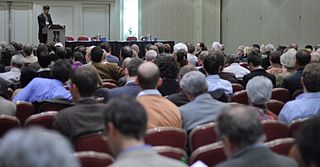
The History of Science Society (HSS) is the primary professional society for the academic study of the history of science. It was founded in 1924 by George Sarton, David Eugene Smith, and Lawrence Joseph Henderson, primarily to support the publication of Isis, a journal of the history of science Sarton had started in 1912. The society has over 3,000 members worldwide. It continues to publish the quarterly journal Isis, the yearly Osiris, sponsors the IsisCB: History of Science Index, and holds an annual conference.

Lynn Thorndike was an American historian of medieval science and alchemy. He was the son of a clergyman, Edward R. Thorndike, and the younger brother of Ashley Horace Thorndike, an American educator and expert on William Shakespeare, and Edward Lee Thorndike, known for being the father of modern educational psychology.

Edmund Oscar von Lippmann was a German chemist and natural science historian. For his writings he was awarded a couple honoris causa doctorates from German universities, as well as the Leibniz Medal and the Sudhoff Medal.
Philosophy of geography is the subfield of philosophy which deals with epistemological, metaphysical, and axiological issues in geography, with geographic methodology in general, and with more broadly related issues such as the perception and representation of space and place.
The George Sarton Medal is the most prestigious award given by the History of Science Society. It has been awarded annually since 1955. It is awarded to an historian of science from the international community who became distinguished for "a lifetime of scholarly achievement" in the field.
The Journal of Food Science is a peer-reviewed scientific journal that was established in 1936 and is published by John Wiley & Sons on behalf of the Institute of Food Technologists in Chicago, Illinois. From 1996 to 2005, it was ranked eighth among impact in scientific journals publishing food science and technology.
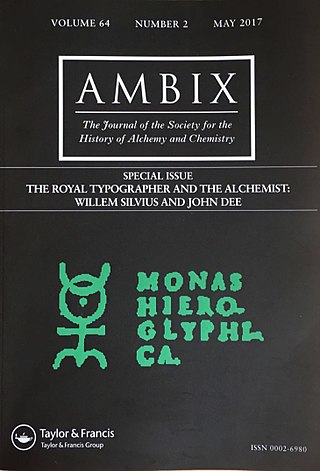
Ambix is a peer-reviewed academic journal on the history of alchemy and chemistry; it was founded in 1936 and has appeared continuously from 1937 to the present, other than from 1939 to 1945 during World War II. It is currently published by the Society for the History of Alchemy and Chemistry.
Lychnos: Lärdomshistoriska samfundets årsbok is an annual academic journal published since 1936 by the Swedish History of Science Society. Articles are mostly in Swedish, with summaries in English, German, or French. A number of volumes have also been published in a monograph series called Lychnos-bibliotek, starting the same year as the periodical.
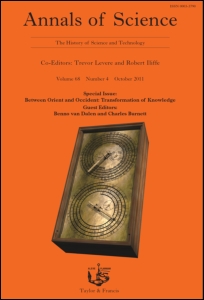
Annals of Science is a peer-reviewed academic journal covering the history of science and technology. It is published by Taylor & Francis and was established in 1936. The founding editor-in-chief was the Canadian historian of science Harcourt Brown.
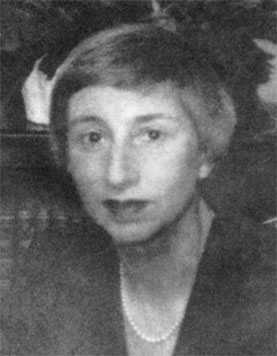
Clarisse Doris Hellman Pepper was an American historian of science, "one of the first professional historians of science in the United States". She specialized in 16th and 17th century astronomy, wrote a book on the Great Comet of 1577, and was the translator of another book, a biography of Johannes Kepler. She became a professor at the Pratt Institute and later at the Queens College, City University of New York, and was recognized by membership in several selective academic societies.

A History of Science, Technology, and Philosophy in the 16th and 17th Centuries is a book by Abraham Wolf first published in 1935 by George Allen and Unwin. A survey of the history of science in the sixteenth and seventeenth centuries, it received a mixed critical reception.
Thomas Leroy Hankins is an American historian of science.










